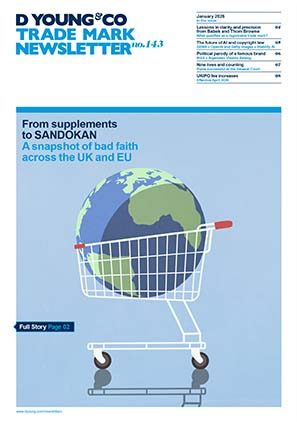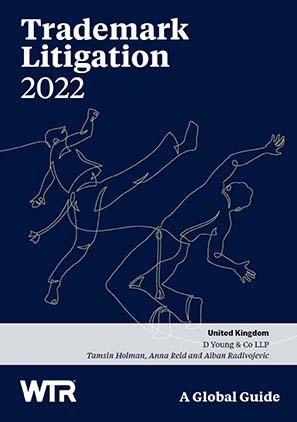The (urban) bubble bursts No likelihood of confusion despite evidence of confusion
In a recent IPEC decision, Judge Hacon found that the sign URBAN EVOLUTION is not sufficiently similar to the URBANBUBBLE mark to give rise to trade mark infringement or passing off in respect of identical property and real estate management services. The evidence of confusion relied on was not caused by the similarity between the marks as such, but by particular factual circumstances, that is, the defendants’ takeover from the claimants as managers of the same properties.
Background
The claimants, Urbanbubble Ltd and its affiliates provide property management services and registered UK trade mark no. 3116646 URBANBUBBLE in 2015 for property and real estate management services. The defendants, Urban Evolution Property Management Ltd, operate in the same industry and trade as Urban Evolution.
In February 2016, The Elliot Group International Ltd hired the claimants to manage their residential buildings in Liverpool. In July 2016, the claimants were asked to use the defendants as letting agents for some of the buildings, and 25% of the Liverpool properties managed by the claimants were taken over by an affiliate of the defendants. In February 2020, the defendants took over full management of the Elliot Group’s properties in Liverpool. The defendants received a handful of emails and 25-30 phone calls from investors and property managers, asking whether Urbanbubble and Urban Evolution were connected.
In proceedings issued in November 2020, the claimants alleged trade mark infringement under sections 10(2) and 10(3) of the Trade Marks Act 1994 (TMA) stating, respectively, that the defendants’ use of URBAN EVOLUTION was likely to cause confusion with the URBANBUBBLE trade mark, and use of the sign took unfair advantage of, and was detrimental to, the distinctive character and reputation of URBANBUBBLE. The claimants also made an allegation of deliberate passing off, which was not pursued in closing.
Likelihood of confusion
The defendants argued that the marks URBANBUBBLE and URBAN EVOLUTION were only similar in the allusive URBAN element, which hints at the services provided by both parties. Judge Hacon did not make a specific comparison between the marks or state to what degree they were similar, but commented that the possibility of confusion was not entirely “preposterous”.
Both sides agreed that the services in question were identical or similar and that the relevant consumer was the notional investor or notional property developer. Judge Hacon noted that professional businesspersons usually take further steps and exercise caution when faced with initial confusion; they might intervene before a sale, hiring solicitors or consultants to investigate further.
The court then considered whether the evidence of confusion should be ascribed to a failure to realise there had been a transition from the claimants to the defendants in managing the Elliot Group buildings, rather than any partial similarity between the marks. The judge found that the evidence did not point to “fully formed beliefs” that Urbanbubble and Urban Evolution were the same undertaking. At best, the emails were considered as indicative of the possibility that there could be a perceived economic link between the two parties. However, whilst the email senders fell within the investor category, they were not the notional investor per se. At most, there was a risk that the average consumer would regard an affiliation between the claimants and defendants as a likely possibility.
Overall, Judge Hacon found that the circumstances whereby Urban Revolution replaced Urbanbubble for the same role in the same building greatly increased the likelihood of confusion; the similarity between the signs was only a partial source of confusion but not its root cause. Had it not been for the particular factual circumstances, there would be no confusion at all, and, therefore, there was no infringement under section 10(2) of the TMA.
Reputation, passing off and consent
The claimants’ allegations of trade mark infringement under section 10(3) and passing off also failed. Whilst the claimants had a reputation in the North West and West Yorkshire, no evidence was put forward regarding a potential unfair advantage, change in economic behaviour or detriment to the earlier mark’s distinctive character. There was also held to be no actionable misrepresentation, as the average consumer would not have a fully formed belief regarding the interconnection of the two parties.
The court also found that the defendants would have a defence of consent, based on emails sent by the claimants in 2018 (when a previous version of Urban Evolution’s logo was replaced after an exchange between both parties). The claimants had told the defendants, “The old logo has changed and it is now time to move on”.
In short
This judgment is a useful reminder that evidence of confusion does not necessarily make or break a case for trade mark infringement or passing off. A contrasting example is the Mont Blanc Simplo GmbH v Sepia Products case ([1999] 12 WLUK 29), where infringement was established despite there being no evidence of actual confusion. Whilst confusion evidence can be highly relevant and persuasive, an evaluation of all the surrounding circumstances is always necessary.
Case details at a glance
Jurisdiction: United Kingdom
Decision level: High Court (IPEC)
Parties: Urbanbubble Ltd, Urban Evolution Property Management Ltd
Date: 25 January 2022
Citation: [2022] EWHC 134 (IPEC)


